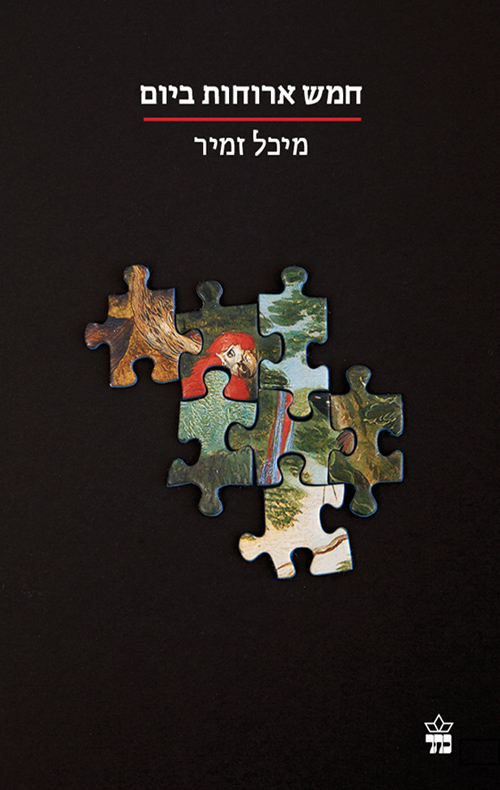
Five Meals a Day
A woman is attending to her mother, whose personality; mind and body are gradually failing due to Alzheimer ’s disease. She is undergoing this deterioration as an inmate in an institution, moved upward from floor to floor as the disease progresses, until she reaches the fifth and final floor. The daughter, the narrator of the novel, is forced to watch as her mother empties of everything she knew and loved. She can no longer recognize her daughter or other people close to her, and she becomes almost a stranger, a new being, someone who must be contended with.
The daughter has been taking care of her mother for some eighteen years, since the onset of the disease. She describes down to the smallest detail what she and her mother go through, as well as the institution and the other patients who are being treated there.
With a sharp and critical eye and with impressive literary ability, Zamir portrays the slow and painful journey of the two women, and the way in which the disease sometimes bares the true selves of the sufferers and of those surrounding them. The story is written from very close up, but also with trenchant irony and heart- wrenching honesty as it gazes unflinchingly at the most difficult period in the lives of two people who are inextricably bound together. As they make this distressing journey, parent and the child experience the disease from two different perspectives. They are forced to contend with situations that they could never have thought possible beforehand. The daughter says about her mother: “Through the cracks that opened up in her judgment, all kinds of stories began to leak out. Stories that I never knew about and that I didn’t want to know about, and indeed that I would never have believed she knew about.” This book is the story of these impossible stories, as well as an attempt to rescue the mother’s identity before it is wiped out by the disease.

-
“The well-honed irony of the daughter-narrator is the salient linguistic and thematic characteristic of Zamir’s book.”
-
“It has been a long time since I encountered in Hebrew literature so marvelous an ability to construct scenes which cause both rollicking laughter and searing pain at the same time. These are scenes that are difficult to describe in a review because they have to be read in their full context, and which altogether simply have to be read. Zamir’s desperate acceptance of the reality of the institution and of her mother’s decline and of life itself makes almost each sentence in this book filled with beautiful venom and a tragic pleasure.”
-
“… This book is a refreshing wave of a middle finger to the sanctimoniousness, the artificial, faked consolation, and the automatic correctness of the response to the tragedies of others. Michal Zamir accompanies her mother as she fades away into Alzheimer’s disease in a nursing home, and she does it honestly, with her head held high, unapologetically, managing to be empathetic without being self-righteous. She writes with an unfettered spontaneity that recoils from conforming to the conduct expected of a daughter in such a situation, and there is no better literature than that which is written with such unfettered spontaneity.”
